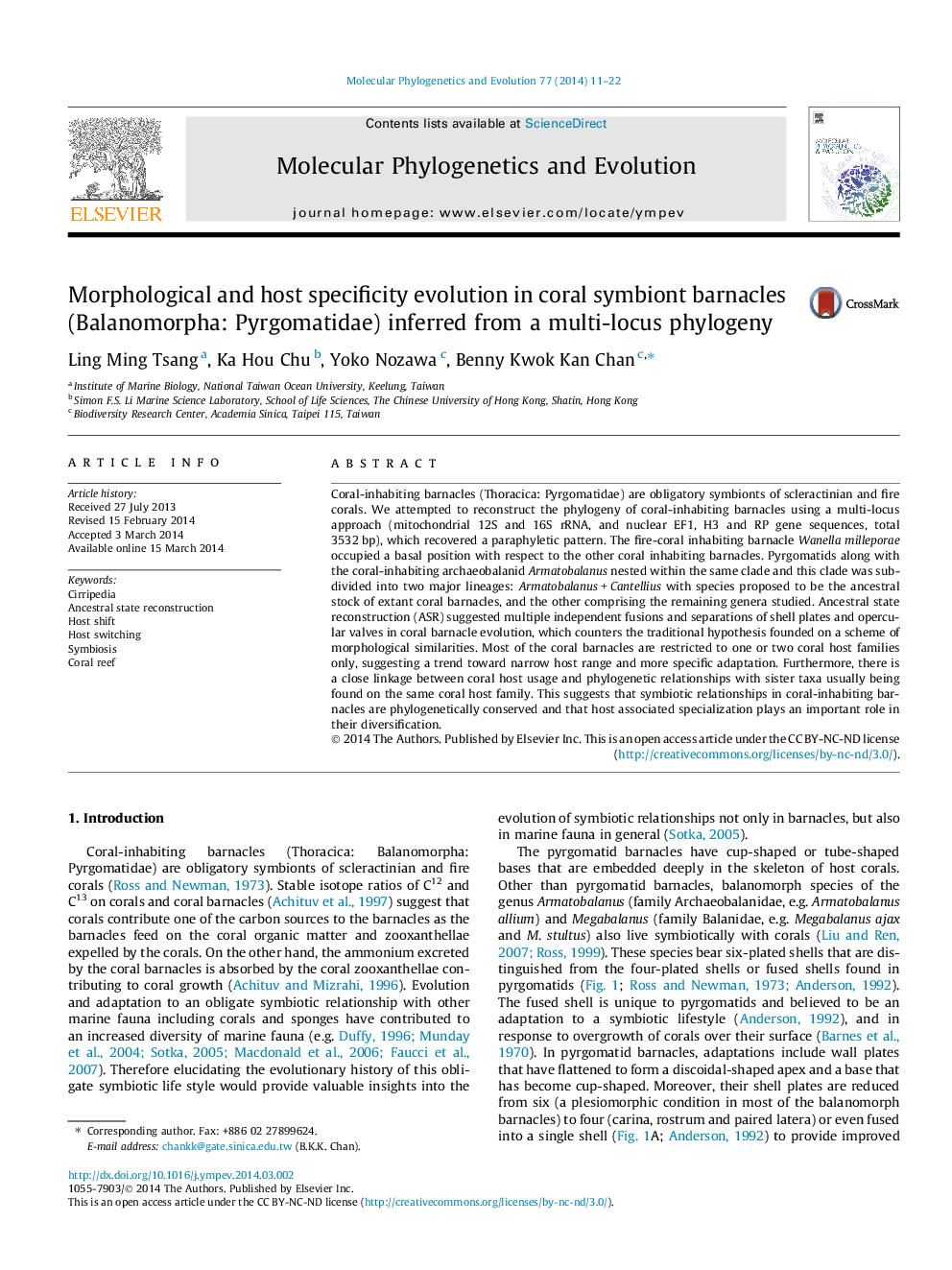| کد مقاله | کد نشریه | سال انتشار | مقاله انگلیسی | نسخه تمام متن |
|---|---|---|---|---|
| 5919445 | 1570818 | 2014 | 12 صفحه PDF | دانلود رایگان |

- Coral-inhabiting barnacles are symbionts of scleractinian and fire corals.
- The origin of shell characters in determining generic relatedness was not supported.
- Ancestral state reconstruction suggests a trend towards a more narrow host range in coral barnacles.
- Symbiotic relationships are phylogenetically conserved.
Coral-inhabiting barnacles (Thoracica: Pyrgomatidae) are obligatory symbionts of scleractinian and fire corals. We attempted to reconstruct the phylogeny of coral-inhabiting barnacles using a multi-locus approach (mitochondrial 12S and 16S rRNA, and nuclear EF1, H3 and RP gene sequences, total 3532 bp), which recovered a paraphyletic pattern. The fire-coral inhabiting barnacle Wanella milleporae occupied a basal position with respect to the other coral inhabiting barnacles. Pyrgomatids along with the coral-inhabiting archaeobalanid Armatobalanus nested within the same clade and this clade was subdivided into two major lineages: Armatobalanus + Cantellius with species proposed to be the ancestral stock of extant coral barnacles, and the other comprising the remaining genera studied. Ancestral state reconstruction (ASR) suggested multiple independent fusions and separations of shell plates and opercular valves in coral barnacle evolution, which counters the traditional hypothesis founded on a scheme of morphological similarities. Most of the coral barnacles are restricted to one or two coral host families only, suggesting a trend toward narrow host range and more specific adaptation. Furthermore, there is a close linkage between coral host usage and phylogenetic relationships with sister taxa usually being found on the same coral host family. This suggests that symbiotic relationships in coral-inhabiting barnacles are phylogenetically conserved and that host associated specialization plays an important role in their diversification.
Journal: Molecular Phylogenetics and Evolution - Volume 77, August 2014, Pages 11-22